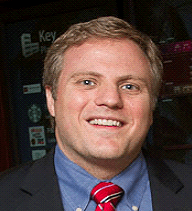Widespread literacy. Low infant mortality. Sanitary medical facilities. These are just a few of the things we take for granted in developed countries. And all of those things flow, directly or indirectly, from something else we don’t often fully appreciate: clean water.
Judy Pitt, a practitioner with the Wright Kingdom Real Estate in Boulder, Colo., knows how much clean water matters. Through her nonprofit Kazi Yake, which translates from Swahili to mean “His works,” she has spent 10 years trying to bring potable water and hygiene information to rural villages in western Kenya, where children die every day due to remediable ailments such as diarrhea, malaria, typhus, and cholera that are brought on by tainted water.
“Out of clean water comes many things,” Pitt says. “One of those is healthy children. If you have best practices for midwives, for example, they wash the baby when it’s born and pass good practices on to the mother.”
Pitt developed a program based on the principles of the Bill and Melinda Gates Foundation and USAID’s WASH for Life (Water, Sanitation, and Hygiene for Life) initiative.

From there, Kazi Yake has grown in both scale and scope. This summer, the organization completed drilling a deep-water well to serve approximately 10,000 people whose only previous access to water was a contaminated river.
These simple measures can mean great things for a community. For example, if girls in a village don’t have to hike several miles each day in search of clean water, they can spend time in school, learning to read and write. And more than 100 midwives trained by Kazi Yake now can instill good hygiene practices in new mothers, who then help prevent the spread of disease by passing these habits on to their kids.
That’s really at the heart of Pitt’s mission, one that she chokes up talking about: helping the children of Kenya survive their infancy and early childhood. “I’m tired of burying babies,” she says. “I don’t want to bury another child, especially when [babies are] dying of something as simple as diarrhea.”
Pitt almost didn’t go to Kenya at all. She had been on mission trips to Ethiopia and Botswana, when, by chance, she met Shem Okello, head of the National Baptist Convention of Kenya, who spoke to her Bible study class in Colorado. He persuaded her to come to Kenya, where she left her heart.
“Many places that we stopped to visit and greet the children, Judy would be crying as I tried to introduce her,” recalls Okello. “Her heart was so heavy, especially with the hungry children who had nothing to eat.”
During many subsequent trips, Pitt won the confidence of the locals by adopting their lifestyle. “It has taken years for people to trust me and understand that I’m not leaving,” Pitt says. “[Kazi Yake volunteers] have no special privileges. I live in the hut like they do. When they don’t eat, I don’t eat.”
This closeness has led to Pitt being considered part of Okello’s family, to the point where she even has a Kenyan name: Judy Shida Taabu Okelo Okello. “I claim [Shem] as my ‘first family,’ ” she says. “I have children named after me, which lets me do the teaching I do, because I'm considered a grandmother.”
Since her first trip to Kenya in 2003, Pitt has been back 11 times. And she doesn’t go for just a couple of weeks. She spends a month or two at a time and brings along as many as 20 volunteers, who, in addition to providing water and hygiene training, help plant crops, repair roofs, and build playgrounds. Pitt plans to settle there permanently after she retires from real estate.
Over the years, Kazi Yake has built 18 churches and trained many widows to run small tailoring or craft businesses. Pitt persuaded a Colorado seed company to donate 10,000 seed packets and send experts to train the villagers how to increase harvest yields. She is now raising money to build a medical clinic that will provide surgery, dental, and birth services.
Still, Kazi Yake is ultimately undergirded by the principle of pi en ngima — a Swahili phrase that translates as “Water is life.”
“The No. 1 need is clean drinking water,” Okello says. “When people are healthy, they have the potential to do everything they want to do.”









